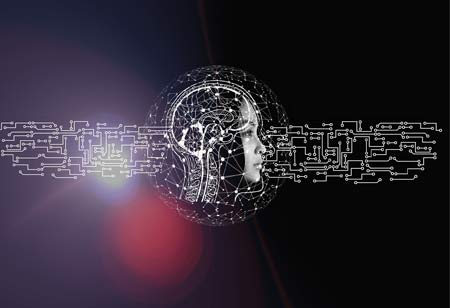THANK YOU FOR SUBSCRIBING
Be first to read the latest tech news, Industry Leader's Insights, and CIO interviews of medium and large enterprises exclusively from Education Technology Insights
Inspiring AI Trends in Education
Education has become more accessible and personalized because of artificial intelligence and machine learning advances.

By
Education Technology Insights | Thursday, December 29, 2022
Stay ahead of the industry with exclusive feature stories on the top companies, expert insights and the latest news delivered straight to your inbox. Subscribe today.
Education has become more accessible and personalized because of artificial intelligence and machine learning advances.
FREMONT, CA: The use of AI in the academic world is projected to increase by 47.5 percent by 2021, according to research. Artificial intelligence will impact education in all areas, from elementary to high schools and colleges. Educators can use AI to create personalized approaches to accommodate each student's learning style. AI, including adaptive learning, provides many other benefits, and education can benefit greatly from AI.
Automation: A great deal of administrative work that takes a great deal of time can be automated by artificial intelligence. A machine can often perform many tasks that educators perform, such as grading exams and assessing homework.
The advancement of automation has allowed professors to spend more time with their students. Developers are also constantly developing a new generation of AI-driven solutions for grading written responses. Admissions boards are another area where AI can be beneficial. Artificial intelligence can automate numerous processes, improving the efficiency of many processes.
Collaboration between AI and teachers: Artificial intelligence is already common in educational tools aimed at developing skills and in many testing systems. With the continued development of AI solutions, educators expect AI to play an increasingly important role in the teaching process, letting schools and teachers do more with fewer resources. It can streamline and increase efficiency in a variety of administrative tasks, and it also offers a wide range of personalization options.
Teachers can provide a better learning experience with the assistance of artificial intelligence, while machines can focus on tasks where they cannot assist. Using AI in partnership with teachers will allow them to focus on tasks requiring adaptability and deep understanding. Exposing students to and teaching them how to utilize AI is also important since it is becoming increasingly important.
Personalization: Traditional education aims to deliver the same learning experience to all students regardless of their backgrounds. Traditional methods, however, only reach about 80 percent of students in practice. There is a huge gap between the top 10 percent of students and the bottom 10 percent of students regarding reaching their full potential.
Using artificial intelligence, teachers can provide students with a personalized learning experience. With AI, students can receive customized exams and in-class assignments, which help them excel academically. It is essential to provide effective feedback in tutoring if it is to be successful. Teachers can provide personalized responses using AI-driven software using tutoring systems that use artificial intelligence to provide quick feedback to students.







